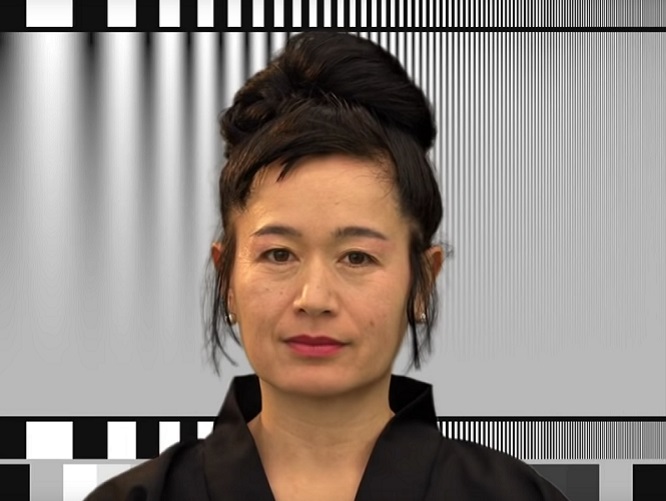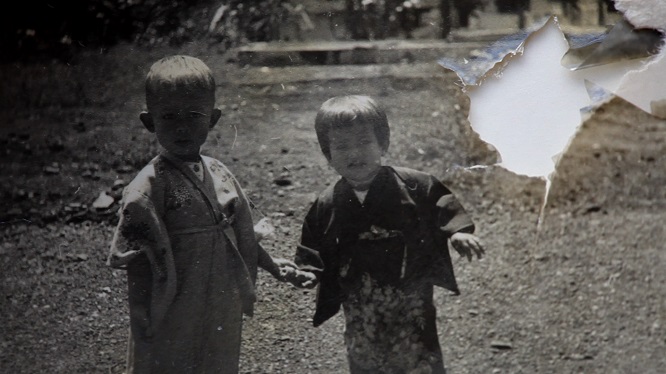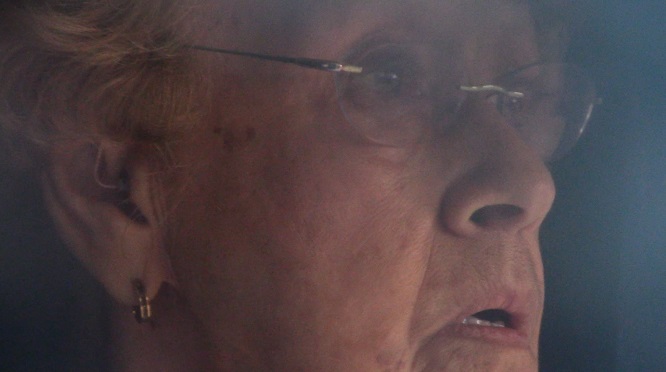
:: A colored scanning electron micrograph of a dying cell infected with the coronavirus [National Institute of Allergy and Infectious Diseases]
Everyone lived in their own pandemic. When I was born, there was an old black and white TV set playing in the hospital room next door. The first words I heard were spoken by a man who had spent his formative years turning into a machine. “There are eight million stories in the naked city. This has been one of them.”
My friend Yuri asked me to consider the Coronavirus as a form of life, as precious and perfect as any of our friends. I wanted to believe him, I wanted to say “yes” to the radical equivalence, the post-human embrace, the refusal of separation, the deep awakening of all sentient beings. I knew that the source of every racist action, not to mention the ongoing catastrophe of climate change, was born from the separations we created in the name of identity. In my heart, I knew that the Buddhist prayers were on the mark. But that’s not how it felt when the pandemic brought me its first gift. The death of my mother.
The word pandemic is from the Greek pandemos; it’s a word that still calls out to us across the centuries. It means: all the people. A pandemic links all the people through the shared threat of infection and death, and the hope of immunity or recovery. The pandemic reminds us that we are living in a global village.
As a filmmaker, the pandemic offers an impossible question, and what could be more irresistible than that? How do you make a picture of “all the people?” How do you make a picture large enough to include everything?
I am five years old, sitting at my mother’s table. She holds her hands out and folds them together, interlacing her fingers, knitting her brow to indicate I should follow along. She looks down at her self-embrace and says, “This is the church,” then from the interlace she raises two index fingers and continues, “This is the steeple.” I repeat after her. She flips her hands over, opening them, revealing a criss-cross of fate and children lines, marriage lines and the Ring of Solomon. She looks up at me and solemnly pronounces, “Open the door, and see all the people.”
Perhaps in order to make a picture of everything, you have to open the door.

:: Hito Steyerl in How Not to be Seen. A Fucking Didactic Educational (2013) [Hito Steyerl]
In her 2013 essay Freedom from Everything: Freelancers and Mercenaries, celebrated artist and theory maven Hito Steyerl wrote about the new economic precarity ushered in by neoliberalism. Rand Corporation, the US conservative thinktank, estimates that 47 trillion dollars were transferred from low and middle income earners to the elite since 1975 — the largest transfer of wealth in History [1]. The ideological camouflage that continues to disguise this piracy promised us freedom first of all: freedom from having a good job or livable wages, freedom from a decent place to live and an affordable education.
Hito traces the origins of today’s side-hustling gig economy, with its forever on-call temp workers, to the “free lancers” of the Middle Ages — soldiers for hire, mercenaries. This period also saw the beginning of a new economic order that would spread across the planet like a contagion. According to Italian feminist historian Silvia Federici, capitalism began with two gestures: a concerted attack on women that was named the witch hunt, and the conversion of public land into private property via theft. This theft of the commons continues today in efforts by the provincial Ontario Tory government to privatize health care and public lands, and in the federal government’s encouragement of monopoly pricing and corporate fealty to our largest telephone and Internet providers.
So when the pandemic began, it was hard for me not to feel it as the virus of neoliberalism. Society was reimagined a giant hospital, everyone would wear medical masks, and speak a new language of bubbles and isolation. Vaccine hoarding and vaccine tourism began. And while government messaging was different in many countries, I never heard the prime minister say: we have a new way of looking after each other. A new way of taking care. That’s why you want to wear a mask, not to protect yourself, but to protect others. And, for the too many who don’t have the luxury to stay home, there could be measures to ensure that their time in the red zone would be limited, and then someone else, perhaps even someone who wasn’t black or brown, would take their place. Everyone would take a turn.
It is not only capitalist methods of production that are in crisis, but the old forms of political representation. What kind of pictures do we need now? And what will we show and share, before we find them?

:: Marleen Hoolboom's childhood [Author's personal archives]
“Never, never had people considered themselves so intelligent and unshakeable in the truth as did those infected ones. Never had they thought their judgments, their scientific conclusions, their moral convictions and beliefs more unshakeable.” As Crime and Punishment winds its way to a close, Raskolnikov falls into a long fever dream. There is a pandemic that begins in Asia, inspiring a global mania. Everyone is certain that they alone possess the truth. As a result, no one can tell any longer what is good and what isn’t, order breaks down, systems fail, soldiers feast on each other. The ability to take care of each other, to look after each other, falls victim to an infectious idea.
When I became HIV positive, and death rubbed away my old face, the virus gave me a second chance, a second life. Like every revolution, the virus taught me that you only live twice.
Two months after the pandemic began, my sister called to say that she had found our mother collapsed in bed, in a pool of blood. Without the epidemic, and the daily check-ins it required, Mother might have lain there for days. We raced to the hospital where we could touch her last hours together. She was in a coma and unmoving, but even so. Her face was deeply relaxed, she looked the way she did when I was still a kid, her fierce attentions at ease for a moment. After many hours of lying still, she burst out in a strangled vocalization I can only call music. She had reached the threshold between worlds and was calling out to the ghosts we had become. Her voice sounded like I had never heard it before, though it was the voice that had taught me how to listen, and more besides; now it contained a new and terrifying beauty, as it testified to the end of this plague, her long and storied life, filled with giving and looking after others, as if service to others was what made us human, was how we became ourselves. She fell silent, and her breathing stopped moments later. The long night had just begun.
[1] Carter C. Price and Kathryn A. Edwards, Trends in Income from 1975 to 2018 (Rand Corporation, 2020), https://www.rand.org/pubs/working_papers/WRA516-1.html

:: Marleen Hoolboom at home [Author's personal archives]
*
Mike Hoolboom began making movies in 1980. Making as practice, a daily application. Ongoing remixology. Since 2000 there has been a steady drip of found footage bio docs. The animating question of community: how can I help you? Interviews with media artists for 3 decades. Monographs and books, written, edited, co-edited. Local ecologies. Volunteerism. Opening the door.
 |
envoyer par courriel | 
| imprimer | Tweet |
